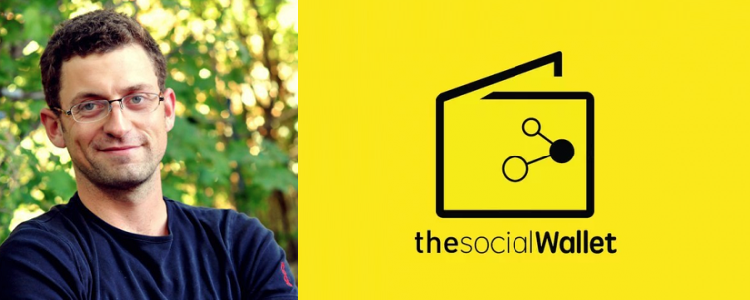Cointelegraph speaks to Canadian Bitcoiner Kyle Kemper about The Social Wallet, a nonprofit that hopes to digitize every aspect of a physical wallet, money, services, and identity. This is the first part in a series of three articles on the Social Wallet.
Social Wallet is a tremendous undertaking by its creator, Kyle Kemper, to bring Bitcoin to the masses and create a revolution in both the developing and developed worlds in terms of finance, identity, and information.
The project launched on the 4th April and is seeking $21,000,000 in donations to complete the project. The project is only 10 weeks old, but they have an app launching next week, and as Kemper says, “this is a fast moving movement and we can accomplish a lot with a little”.
A wallet that allows social payments
CT: What was it that made you decide to start working on Social Wallet?
Kyle Kemper: I was one of the top users of ChangeTip and over the years have given out almost $15,000 in BTC on that platform and think the world of it. I was convinced that social payments were the future and that, instant, no fee, no minimum was huge.
My problem with ChangeTip was that, while it is an incredible platform, the user experience was underwhelming. I would sign people who knew nothing about bitcoin up and they would get lost almost right away in their system; there were a lot of features, a lot of terms that were new to them, and so many accounts to connect.
So I've given the feedback to ChangeTip and they appreciated it but never really implemented it. They have APIs though so I had been thinking about building a ChangeTip app that simplified it into 3 things, ‘Send Money’, ‘Request Money’, and ‘Feed’ - basically a Venmo, but with no banks and no borders.
I went to the NABTC in Miami in a business development role for Kraken. It was awesome. The industry has come so far since I started in 2013 and where it was once the wild west to me, it seemed that the foundation was laid and we just need a simple wallet to bring in the next wave of adopters.
I heard about a hackathon being put on by the BitStop guys, and I talked to Marshall Swatt about my idea for it, and we brainstormed and did a technical assessment, and there was nothing stopping us.
The Thursday night of the hackathon I was at Chris Groshong's 55th floor Airbnb with a bunch of awesome bitcoiners, and this is where I met James Wilson. Him and I hit it off immediately and identified on so many levels. I picked him up the next morning and Marshall, James and I had brunch in Little Havana where we discussed the idea. "Let's call it Change, or Transfer...but really what it allows is social payments, so it's a social wallet....social wallet...social wallet...that's it." We looked over google and it was green so we had our name!

A solution to global money transfer fees
CT: So what happened at this hackathon?
KK: Our goal for the hackathon was to build a fully functioning app by the end of the event. The team consisted of myself, James Wilson, Marshall Swatt, and Alex Hudson. Alex is a native iOS developer who at the time knew nothing about bitcoin.
When I started to realize the scope of what we were working on, I hopped on the phone and started activating the network to assist. One of the first priorities was graphic design and a friend connected us to a designer named David who I was told had worked on Instagram.
He spent 14 hours doing UX designs end to end and when he sent them over I was overcome with joy. The beauty, the simplicity...I showed it to people on the street and they were like, "Oh it's like venom." That was music to my ears.
I explained that it would use bitcoin, not require a bank account and be a solution to global money transfer fees, and the people got really excited and wanted more info - sweet validation.
Digitizing the wallet
CT: How did the idea of literally digitizing the wallet come about, with all your identity cards, loyalty cards etc. included?
KK: Wilson and I started talking about Digital Identity and how significant it will be in the world of tomorrow. Then we realized that the social wallet can hold it. We can let users have the keys to unlock entries in encrypted blockchains.
I have been talking with the fine folks at ID2020 for a while, so I realized just how possible this was. Now in our minds we had bitcoin and identity in the wallet roadmap. I started realizing the scope and how we would need a fair sum of funding to pull this off.
I was confident that this would be something the VC’s and investors would love as it was a route to bring Bitcoin to the masses, but then I started thinking about VC's, portfolio allegiances, command control structures, etc. and began to think that maybe that wasn't the most appropriate route; they would likely want to charge a fee as well, which I am headset against.
Wilson and I envisioned an open API where we empower businesses and individuals (even governments) to build to the wallet, to integrate their services, and to allow people to hold their keys. This is still the plan.
If you would like to donate to the project, the generosity.com campaign can be found here.
